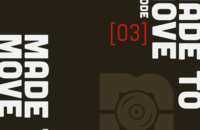“Today I’m supposed to read another article on button pushing fake dance artists. I don’t listen to their music, I’m certainly not fake, so who gives a shit which button they push?”
Perhaps misquoting Ferris Bueller’s Day Off is a pretty obscure introduction to a discussion on electronic music’s current hot topic, but amazingly it seems the most efficient way to summarise what the real problem is here. Because aural effluence has always been a big part of the dance flood water, so branding unarguably commercial artists as fly-by-night chancers is like explaining to a halfwit that bankers shouldn’t be trusted. He might not be the most astute card in the pack, but some things even the least observant of us will pick up on after years of an industry trying to sell us rotten piles of festering rubbish.
Subjectivity is the essence of music, it’s what makes things vital, and keeps things interesting. The day we all sit down and agree on what’s ‘right’ is the day we need to start worrying, so if someone wants to spend an extortionate amount of money watching a throwaway dance artist, packed into a stadium with 15,000 others, then why not let them? After all, there’s a good chance they won’t leave under the impression it was some off-the-radar party at the forefront of global youth culture, and it’s quite likely they enjoy being part of the commercial mega-bucks thing. Cutting to the chase, the pyrotechnic crew and underground beat peddlers represent two very different scenes in 2012, it’s just weird not everyone seems to realise it.
That said, marketing and PR are vital to the survival of all promoters, DJs, and producers, from true talent to TV sponsored festival headliners. People used to release tracks under unknown pseudonyms as standard practice, now we’re lucky not to be given their waist size and favourite colour with the product or event description. There’s nothing wrong with this necessarily, without firm business models we’d be in a far more precarious place, but this is indicative of the way in which publicity is essential, with the first rule of entertainment being that almost all press is good press.
As such, by continuing to muse with malice over the credibility of What’s His Face Who Wears That Stupid Mask, or That Guy With The Crappy Artwork, are we not merely servicing their marketing machines? It seems rather probable, which in turn suggests some short sightedness on the part of the ‘real’ faces fuelling this fire. They know how things work, so why decide to grease the business wheels with additional articles and Facebook posts? Furthermore, whilst these sentiments are designed to inspire detractors from the good ship 10,000 Capacity Stadium Show, is it not more likely unabashed criticism will have the opposite effect?
If you tell someone they know nothing about something they enjoy there’s a good chance feet will dig into the sand, and their corner will be fought with renewed fervour. Consider the immediate pre-digital age, a time far simpler. Magazines, of course, played a huge part in breaking acts onto the major market, but for every cover photo shoot there was a bunch of people sitting in the chill out room of a dirty venue delivering a diatribe of abuse about exactly the same rising stars others paid £3.75 to read an exclusive interview with.
In contrast, tapes were passed around (or perhaps MiniDiscs and CD-Rs), containing live sets from quality DJs and musicians, and those that were interested in the recordings took notice, irrespective of whether they also subscribed to Dance Trends Monthly. An amazing attribute of the human brain is its ability to enjoy a multitude of things. The point being that for all the rants ever published, personal investigation is still the main way in which new fans are born, opinions change, and scenes are maintained. Chances are few dedicated followers of anything would make a U-turn after a few tweets and some guy making a track designed to slate whatever it is they enjoy listening to.
And not least when the ‘diss tune’ isn’t exactly blowing anyone away in terms of its own musical merit. Surely a better retort would be to simply share some of the finer moments from the planet’s illustrious electronic history, in a kind of ‘here’s what you could be dancing to’, pseudo-Jim Bowen on Bullseye manner. He didn’t launch into a stream of insults against the losers on-screen, so why is it a good idea for us to lower ourselves by getting angry at those with unfortunate taste in the real world? That is unless we want to continue elevating the status of inflated egos by keeping their names all over the internet via comments on what is, in effect, a rather pointless argument. After all, this isn’t going to change the fact some people make pop, others industrial techno, and others neo-goth ska punk. Enough said, it’s getting boring.







